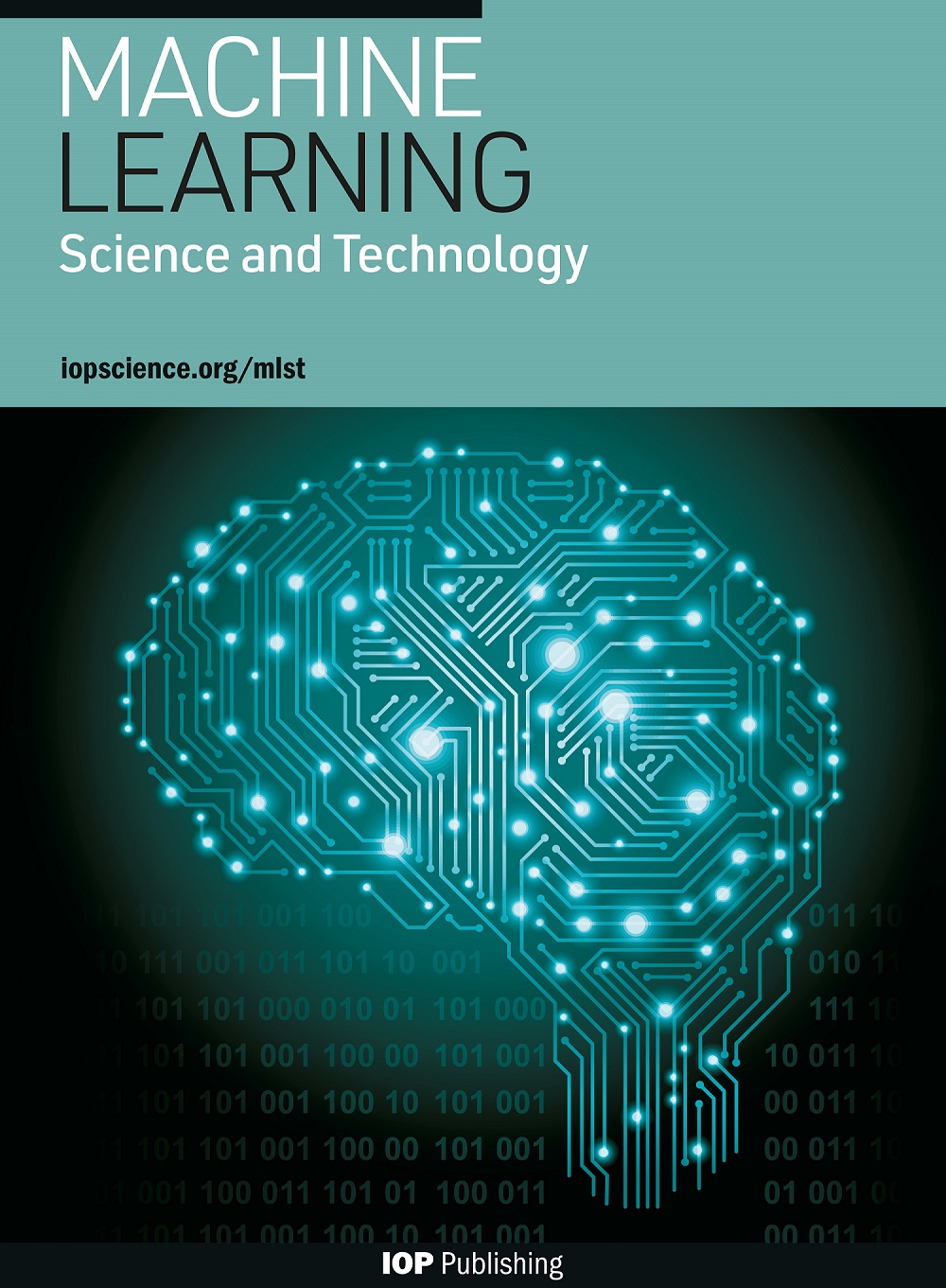开发用于复杂几何形状低温等离子体模拟的机器学习泊松求解器
IF 4.6
2区 物理与天体物理
Q1 COMPUTER SCIENCE, ARTIFICIAL INTELLIGENCE
引用次数: 0
摘要
泊松方程在许多物理系统建模中发挥着重要作用。在静电自洽低温等离子体(LTP)模拟中,泊松方程在每个模拟时间步长都要求解,这可能会导致整个模拟的计算成本大幅增加。在本文中,我们介绍了通用机器学习泊松求解器的开发过程,该求解器专门针对结构化笛卡尔网格上复杂二维反应堆几何形状中的 LTP 模拟要求而设计。在这里,反应器几何结构可以由内部电极和介电材料组成,这在 LTP 模拟中经常出现。该方法采用混合 CNN 变换器网络架构,并结合加权多项损失函数。我们使用高度随机化的合成数据对网络进行训练,以确保所学求解器对未知反应器几何形状的通用性。结果表明,学习到的求解器能够生成定量和定性的精确解决方案。此外,它对新的反应器几何形状(如文献中的参考几何形状)也有很好的通用性。为了提高 LTP 模拟所需解的数值精度,我们采用了传统的迭代求解器来完善原始预测,特别是恢复初始预测未解决的高频特征。这样一来,所提出的学习泊松求解器就能提供所需的精度,而且速度可能比纯 GPU 传统迭代求解器更快。这为开发用于复杂几何结构中 LTP 系统的通用高性能学习泊松求解器提供了新的可能性。本文章由计算机程序翻译,如有差异,请以英文原文为准。
Towards a machine-learned Poisson solver for low-temperature plasma simulations in complex geometries
Poisson’s equation plays an important role in modeling many physical systems. In electrostatic self-consistent low-temperature plasma (LTP) simulations, Poisson’s equation is solved at each simulation time step, which can amount to a significant computational cost for the entire simulation. In this paper, we describe the development of a generic machine-learned Poisson solver specifically designed for the requirements of LTP simulations in complex 2D reactor geometries on structured Cartesian grids. Here, the reactor geometries can consist of inner electrodes and dielectric materials as often found in LTP simulations. The approach leverages a hybrid CNN-transformer network architecture in combination with a weighted multiterm loss function. We train the network using highly randomized synthetic data to ensure the generalizability of the learned solver to unseen reactor geometries. The results demonstrate that the learned solver is able to produce quantitatively and qualitatively accurate solutions. Furthermore, it generalizes well on new reactor geometries such as reference geometries found in the literature. To increase the numerical accuracy of the solutions required in LTP simulations, we employ a conventional iterative solver to refine the raw predictions, especially to recover the high-frequency features not resolved by the initial prediction. With this, the proposed learned Poisson solver provides the required accuracy and is potentially faster than a pure GPU-based conventional iterative solver. This opens up new possibilities for developing a generic and high-performing learned Poisson solver for LTP systems in complex geometries.
求助全文
通过发布文献求助,成功后即可免费获取论文全文。
去求助
来源期刊

Machine Learning Science and Technology
Computer Science-Artificial Intelligence
CiteScore
9.10
自引率
4.40%
发文量
86
审稿时长
5 weeks
期刊介绍:
Machine Learning Science and Technology is a multidisciplinary open access journal that bridges the application of machine learning across the sciences with advances in machine learning methods and theory as motivated by physical insights. Specifically, articles must fall into one of the following categories: advance the state of machine learning-driven applications in the sciences or make conceptual, methodological or theoretical advances in machine learning with applications to, inspiration from, or motivated by scientific problems.
 求助内容:
求助内容: 应助结果提醒方式:
应助结果提醒方式:


